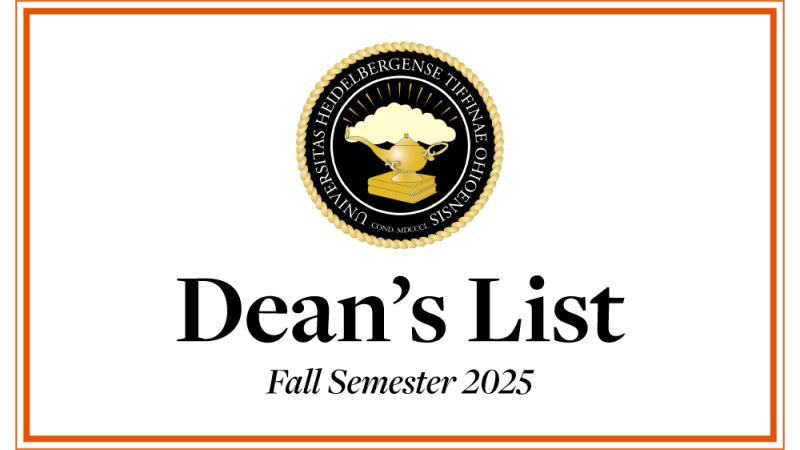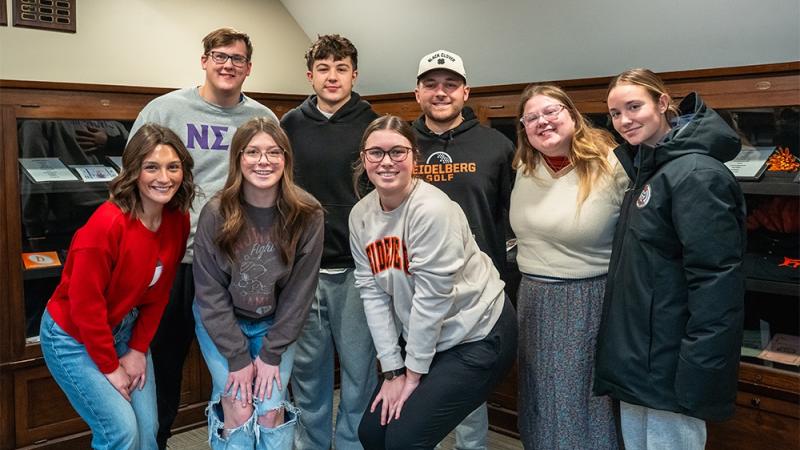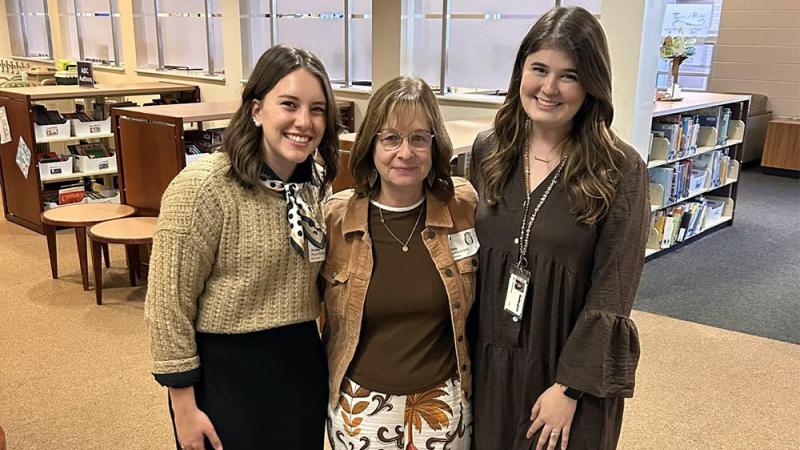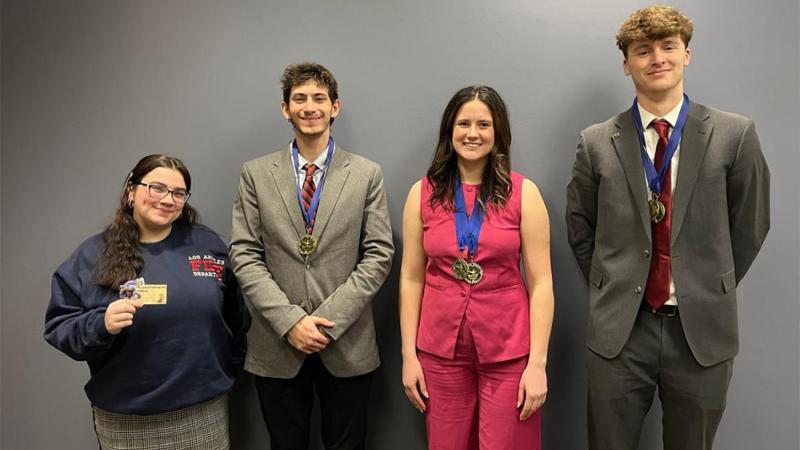As 1st-year Ph.D. student, '20 alum well prepped for COVID research
Caleb Frye’s first year of graduate school has been full of twists and turns, especially in the research world of COVID-19.
Following graduation from Heidelberg last May, Caleb selected Duquesne University in Pittsburgh, where he’s pursuing his Ph.D. in chemistry with a research focus in biochemistry. His timing was perfect; he hopes to develop his research specialization in the biochemistry of infectious diseases.
Right now, he’s involved in cutting-edge research that may shed light on COVID-19 and one day lead to antiviral medications or possibly vaccines. Because much of his research is as yet unpublished, he has to keep it under wraps. But he did share some general details.
Caleb is working on COVID-related research in an RNA biochemistry lab. He uses various biochemical techniques to study the virus, examining its genome and viral proteins and how they work. “That way, we can develop antiviral medicine and / or potential vaccines based on what we know,” he says. It’s rewarding for this future scientist to know that his work is contributing to society and his lab is making an impact.
Shortly after Caleb decided on Duquesne, he learned that his principal investigator / advisor Dr. Mihaela Rita Mihailescu and Dr. Stephen Evanseck received a Rapid Response Research Grant from the National Science Foundation. “Dr Mihailescu was more than willing to help me get started on this work during my first year,” Caleb says. “She’s been an outstanding advisor and mentor, and my work has grown tremendously since working in the lab.”
The value of mentors
Not quite a year removed from Heidelberg, Caleb reflects on the excellent grad school preparation he received. “Although I was a biochemistry major, I can say that every faculty member taught me something, somehow,” he says.
There was Dr. Justin Pruneski, who was Caleb’s research advisor during his senior year … and Dr. Nate Beres, who allowed him to do his own research that bridged what he learned in microbiology to what he learned in biochemistry. It was that research project that “prepared me most for what I do now and helped give me a head start on the work I’m running currently.”
And Dr. Aaron Roerdink, Caleb’s academic advisor who prepared him academically and helped sharpen his lab skills. From one step to the next – just like General Chemistry Lab with Dr. Bryan Smith to Advanced Lab Skills with Dr. Roerdink and Biochemistry lab with Dr. Beres – he has felt extremely prepared for grad school.
With no shortage of outstanding mentors, Heidelberg gave him an advantage.
“I can say that through my independent research, advanced lab courses and time in lectures about each discipline of science, I was able to enter graduate school with an already developed set of learning and critical thinking skills,” Caleb says.
Additionally, his time as an officer in the Chemistry Club was essential. “Our trips to American Chemical Society’s national conferences and to professional laboratories allowed me to see that I wanted to go into biochemical research.”
Caleb gave a huge nod to Heidelberg’s natural sciences faculty as a whole – also including Dr. Ken Baker, Dr. Pam Faber and Dr. Kylee Spencer – for “helping me develop in more ways that I would in just a chemistry lab.” He’s grateful for the experience of plating bacterial cells, working with the cadavers and learning the basics of gel electrophoresis.
“I’ll never forget enjoying my labs and lectures with each of my professors. They helped me find a fun side to my work,” he says. “I can enjoy being a scientist while keeping my productivity high and projects on tasks.”
The puzzling pandemic
It hasn’t been easy to stay productive and focused during the pandemic. Room capacity has been limited. Access to specific lab equipment has been modified. General office space has changed entirely. But with all of the necessary adjustments in place, the work goes on. Caleb and his colleagues have proceeded with their work as planned.
Yet, the virus’s unpredictability can throw curve ball after curve ball. COVID is highly similar to the recent SARS outbreak and shares similarities with other coronaviruses. However, each virus is unique in its own right, so there’s no manual for how it will operate. Essentially, no right or wrong answer; just a lot of questions.
“I don’t have a lab manual, and I’m not doing experiments where most are consistent with their results,” Caleb explained. “I’m constantly learning new things about this virus, all while trying to fit the pieces of a puzzle together with no clue if it’s right or not.”
Experiments have to be redone all the time, which can be frustrating. But it’s part of the challenge and the mystery of science that Caleb really enjoys. That, and the excitement knowing that his work could one day contribute in positive ways to the scientific community and the general public.
“Knowing that your work is making a difference helps keep motivation high while helping you keep your feet on the ground and working consistently.”




